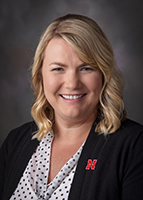Breadcrumb
Interdisciplinary Reproduction & Health Group Science Seminar – June 5, 2024
The goal of the Interdisciplinary Reproduction & Health Group (IRHG) Seminar Series is to highlight transdisciplinary precision research taking place in the reproductive health field, provide opportunities for collaboration among researchers to build their own research efforts and promote clinical/researcher activity across the University of Missouri System and our partners.
The IRHG was organized and established through a faculty-driven, grass roots effort in 2016 to develop an integrative interdisciplinary program that transcends traditional departmental, college and system boundaries to foster excellence in reproduction, health research and education at Mizzou.
View all upcoming Reproductive Health events on the IRHG Seminar Series website.
For questions about this event, please reach out to Wipawee Winuthayanon.
Developmental Programming of Porcine Testis Biology: Implications for Swine Production and Human Health
Speaker: Amy Desaulniers, Ph.D., Assistant Professor of Reproductive Physiology, School of Veterinary Medicine and Biomedical Sciences, University of Nebraska-Lincoln
Date: June 5, 2024, 4-5 p.m.
Location: Roy Blunt NextGen Precision Health Building, Atkins Family Seminar Room
In-person and virtual option
- Light snack will be provided in person. All are welcome!
- Attend virtually in Zoom with ID 969 5309 4849 and passcode 422673.
About the Speaker
 Dr. Amy Desaulniers is an Assistant Professor within the School of Veterinary Medicine and Biomedical Sciences (SVMBS) at the University of Nebraska-Lincoln (UNL). Dr. Desaulniers earned her Ph.D. in 2018 from UNL in the area of reproductive physiology and endocrinology. Her doctoral work identified a critical regulator of steroidogenesis within porcine Leydig cells using a novel transgenic swine model. Dr. Desaulniers served as an Assistant Professor at the University of Central Missouri for three years before returning to UNL to join the faculty within the SVMBS in 2021.
Dr. Amy Desaulniers is an Assistant Professor within the School of Veterinary Medicine and Biomedical Sciences (SVMBS) at the University of Nebraska-Lincoln (UNL). Dr. Desaulniers earned her Ph.D. in 2018 from UNL in the area of reproductive physiology and endocrinology. Her doctoral work identified a critical regulator of steroidogenesis within porcine Leydig cells using a novel transgenic swine model. Dr. Desaulniers served as an Assistant Professor at the University of Central Missouri for three years before returning to UNL to join the faculty within the SVMBS in 2021.
The broad focus of the Desaulniers laboratory is to elucidate the biology of the mammalian testis in order to enhance fertility in agriculturally relevant species as well as humans. Dr. Desaulniers and her team are especially interested in Leydig cells within the testis, which produce steroids that are critical for both male fertility and health. Leydig cell dysfunction not only impedes reproduction, but also increases the risk of morbidity and mortality. The Desaulniers laboratory uses animal models to examine how pre- and post-natal insults (e.g., heat stress or milk deprivation) influence Leydig cell differentiation, steroidogenesis, and overall fecundity. A better understanding of the factors that affect mammalian testicular function will lead to the development of novel therapies and/or intervention strategies to maximize fertility in both animals and humans.